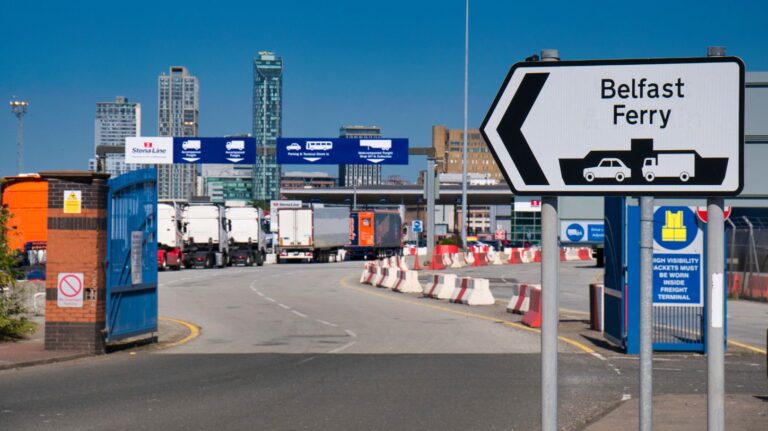As of 1 May 2025, changes to the Windsor Framework will come into effect, requiring information to be submitted to the Customs Declaration Service (CDS) about business-to-business parcel movements from Great Britain to Northern Ireland.
The Windsor Framework is a post-Brexit agreement between the UK and EU, which was agreed in February 2023. It was implemented to streamline trade between Great Britain and Northern Ireland.
It replaces the original Northern Ireland Protocol with a dual-route system: a ‘green lane’ for goods staying within Northern Ireland, subject to minimal checks, and a ‘red lane’ for goods destined for the EU, which face full customs procedures.
Designed to ease logistical burdens, it aims to reduce paperwork for trusted traders and safeguard the flow of goods, while ensuring Northern Ireland continues to align with EU standards for certain products.
The framework is intended to balance economic efficiency with political stability, addressing concerns that its predecessor, the Northern Ireland Protocol, was “the source of acute political, economic and societal difficulties in the two years since it has been operating”, as the Conservative government led by Rishi Sunak described it in February 2023.
From May, all business-to-business parcels sent from Great Britain to Northern Ireland will require information to be submitted onto the CDS. In most cases, this information will be provided by the parcel carrier. As such, businesses will need to provide information to their parcel carrier when requested. According to recent government guidance, “the information needed depends on the type of parcel movement”.
This won’t affect parcels sent from Great Britain to Northern Ireland between private individuals; but it will affect business-to-consumer and business-to-business parcel movements. A business that only sends parcels to consumers will not need to register for the UK Internal Market Scheme (UKIMS), but information such as the weight, the recipient and contents of the parcel will need to be collected by the parcel carrier.
A simple description of each product inside a parcel will be required. There are no customs declarations, customs duty or presentation of goods to customs authorities if a business-to-consumer parcel is moved by a carrier authorised under the UK Carrier Scheme.
Business-to-business parcel movements from Great Britain to Northern Ireland will also require information to be submitted to the parcel carrier. Businesses will need to check if their parcel carrier completes declarations on their behalf. If not, the business will need to make declarations through the Trader Support Service.
For a parcel to be moved without a full customs declaration and with no customs duty, the following conditions must be met: the party acting as the importer must be authorised under the UK Internal Market Scheme; the goods must be for sale or final use by end consumers located in the UK; and the goods must meet the criteria to move using Internal Market Movement Information.
A full customs declaration will be required when either: no party can act as the UK Internal Market Scheme authorised party, or the goods do not meet the criteria to move using Internal Market Movement Information. In these cases, a parcel carrier may need more information from a business about the goods movement, and customs duty may be charged. No duty will need to be paid if the value of the goods is £135 or less.
These changes were initially due to come into effect in October 2024, but were delayed until 31 March 2025. Then, earlier this year, HM Revenue and Customs (HMRC) confirmed, that they would once again be delayed, this time until 1 May.
After the changes were delayed for a second time, Nichola Mallon, head of trade and devolved policy at business group Logistics UK, urged the government to use the time to maximum effect and continue raising awareness: “There are significant new processes that will be required under the next phase of the Windsor Framework, particularly when it comes to the movement of business-to-business parcels from Great Britain to Northern Ireland.
“Many businesses will be frustrated by this delay given the extensive work, resources, time and effort they have put in getting their supply chains ready for 31 March. For good to come from this delay, HMRC must use every minute to raise awareness and support all of those businesses which aren’t yet ready.
“Ever since the initial delay was announced in the autumn, we have been calling for a wide-ranging awareness programme, and while communication has improved of late there are still low levels of understanding, especially among businesses in Great Britain.
“With the rise in e-commerce, almost every household and business in Northern Ireland relies, one way or another, on parcels, so it is essential that businesses are supported to adapt to these significant changes to ensure the smooth flow of trade.”







